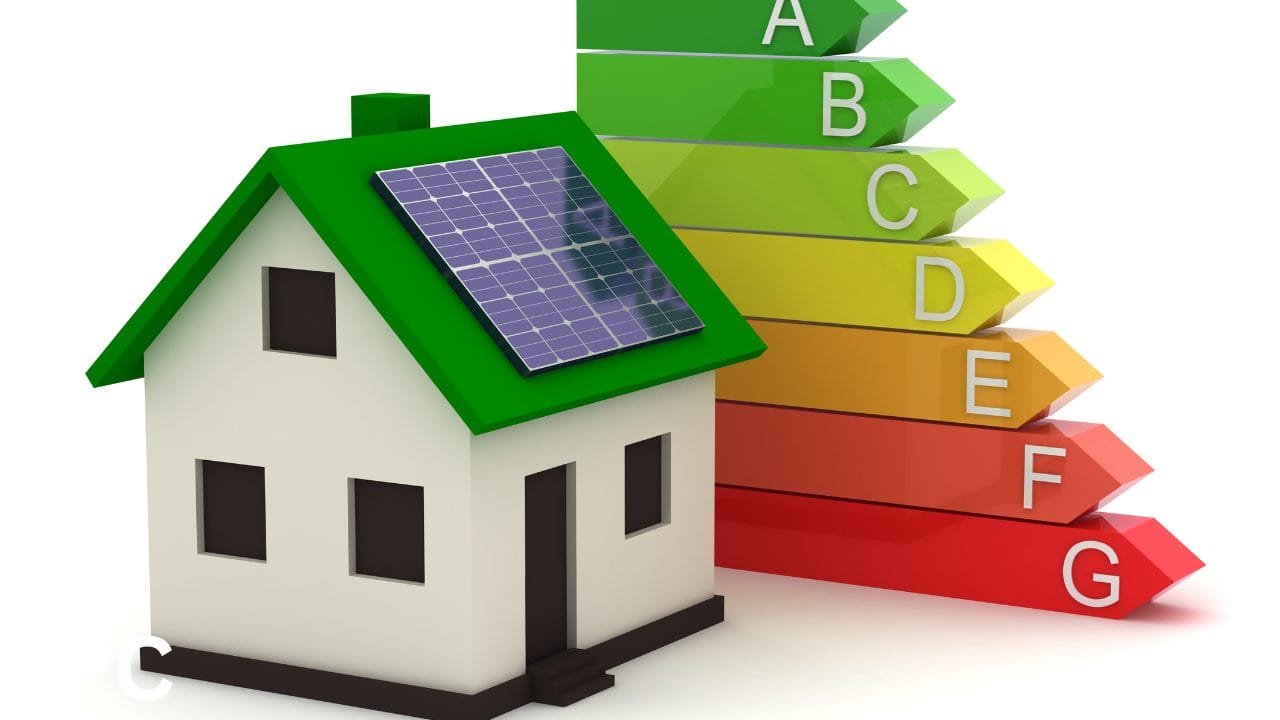
EPCs (Energy Performance Certificates) are vital documents used in assessing a property’s energy efficiency. It gives the property a rating from A (most efficient) to G (least efficient), helping potential buyers or renters understand how much energy the property consumes. EPCs are significant during property sales or rentals, yet many people are still unaware of their significance and benefits. Understanding how EPCs work and when they’re required helps both property owners and renters make informed, eco-conscious decisions.
Key Points:
- EPCs rate properties from A (most efficient) to G (least efficient).
- A property must be approved before it can be advertised for sale or rental.
- Valid for 10 years.
- An estimation of the cost ranges from £60 to £100, depending on the property’s size and the complexity of the assessment.
- Helps identify cost-saving energy improvements.
- If compliance is not achieved, fines of up to £5,000 may be imposed.
When Is an EPC Required?
UK properties need an Energy Performance Certificate (EPC) when built, sold, or rented. Before listing a property on the market, sellers and landlords must ensure an up-to-date EPC is available. This helps potential buyers or tenants make decisions based on energy efficiency data. The certificate remains valid for 10 years, after which a new one must be obtained. Landlords are also legally required to provide a copy of the EPC to tenants at the start of any new tenancy. These rules support efforts to improve energy use and environmental responsibility in the property sector.
What Is an EPC Rating?
An EPC rating tells you how energy efficient a property is, using a scale from A (very efficient) to G (poor efficiency). This rating is a critical part of the certificate, influencing both energy bills and property appeal. It’s more than just a formality; it provides practical insight into a property’s likely running costs and environmental impact.
| EPC Rating | Energy Efficiency | Expected Energy Cost |
|---|---|---|
| A | Very Efficient | Lowest |
| B | Efficient | Low |
| C | Average | Moderate |
| D | Below Average | High |
| E-G | Poor Efficiency | Very High |
Need an EPC? Local assessors can help ensure your property meets current legal standards.
Why Should I Get an EPC?
Getting an Energy Performance Certificate isn’t just about following the law; it offers valuable insights into your property’s energy usage. It shows areas where improvements can be made, helping homeowners or landlords make energy-saving upgrades that reduce utility bills. EPCs also boost your property’s appeal to buyers or renters who value eco-efficiency. In addition, it demonstrates your commitment to sustainability, aligning your property with modern environmental standards and expectations.

What’s the price of getting an energy performance certificate?
The cost of acquiring an EPC can fluctuate depending on factors like the size of the property and the time it takes to complete the assessment. For most homes, prices range between £60 and £100.
Comparing quotes from certified assessors can help you find the best deal and ensure a professional service.
| Property size | Cost Range |
|---|---|
| Studio | £52.99 |
| 1-3 bedrooms | £58.99 |
| 4 Bedrooms | £69.99 |
| 5 Bedrooms | £79.99 |
Is the Energy Performance Certificate Compulsory?
Energy Performance Certificate are required by law in most cases in the United Kingdom. If you’re selling, renting, or building a property, a valid EPC must be in place. Residential and commercial buildings both fall under this rule, although there are a few exceptions. For instance, listed buildings, temporary structures, and certain agricultural buildings may be exempt.
Keeping up with current regulations is essential because these requirements can evolve with new government sustainability policies. For landlords and property sellers, understanding and meeting EPC obligations is necessary for legal compliance and smooth transactions.
Laws and Consequences
EPCs are legally mandated, not merely functional. If you try to sell or rent a property without one, you could face fines. So, your first step should be to search for an energy performance certificate near me. In the UK, penalties can reach up to £5,000 for failing to produce a valid EPC. Commercial properties face potentially much worse consequences.
Additionally, landlords might be restricted from letting properties that don’t meet minimum energy efficiency standards. Ensuring your EPC is up to date protects you legally and enhances your property’s overall appeal.

EPC Requirement Waivers
Specific properties are exempt from Energy Performance Certificate requirements, and they do not need to comply with the particular requirements. This includes:
- Buildings not intended for sale or rent.
- Listed or historical buildings where efficiency upgrades would alter their character.
- Some types of agricultural or industrial buildings.
Understanding whether your property qualifies for an exemption is key to avoiding unnecessary expenses and ensuring compliance with regulations.
Benefits of an EPC
Improved Energy Awareness
EPCs help homeowners and tenants understand how much energy a property uses and where improvements can be made. This encourages better habits and investment in more sustainable solutions.
Reduced Energy Bills
By acting on the EPC’s recommendations, such as upgrading insulation or replacing heating systems, property owners can significantly lower energy usage and reduce monthly costs.
Increased Property Value
You can increase the rate of sales for buyers and tenants with a better EPC Rating. Energy-efficient properties often sell faster and for a higher price, as buyers value lower running costs.
Key Advantages:
- More interest from potential buyers or renters
- Higher sale or rental price
- Quicker transactions
- Standout appeal in competitive markets
Legal Protection
Owning a valid EPC keeps you in line with legal obligations and helps avoid hefty fines. It’s an essential part of responsible property ownership and management.
Environmental Benefits
Improving energy efficiency through EPC recommendations reduces your carbon footprint and supports broader environmental goals, like reducing greenhouse gas emissions and conserving resources.
Access to Grants and Incentives
Many government schemes require a valid EPC as part of the eligibility criteria. These grants can help fund energy-saving upgrades like solar panels or efficient heating systems, saving you money upfront and in the long term.
Frequently Asked Questions
Validity time for an EPC?
An EPC lasts for 10 years. Once it expires, a new one must be obtained if the property is being sold or rented.
Can I get an EPC for a commercial property?
Yes, EPCs are available for both residential and commercial properties. A qualified assessor must carry out the inspection.
Who can issue an EPC?
Only accredited domestic energy assessors can provide official EPCs. They must be registered with a government-approved scheme.
How can I improve my EPC rating?
Improvements include better insulation, modern boilers, double-glazed windows, energy-efficient appliances, and the installation of renewable energy solutions.
Is an EPC transferable when selling a property?
Yes. An EPC stays with the property and remains valid for 10 years, even after a sale.
Conclusion
An Energy Performance Certificate in the UK is more than a legal requirement; it’s a valuable resource for improving energy efficiency, cutting costs, and increasing property value. Whether you’re a homeowner, landlord, or buyer, understanding Energy Performance Certificate empowers you to make smarter, more sustainable property decisions. Staying compliant and making energy-efficient upgrades not only benefits your finances but also supports the environment and adds long-term value to your property.








